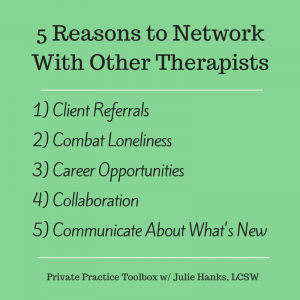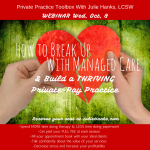 I'm excited to present a blog challenge that has to do with one of my favorite topics: relationships. Specifically, you'll have the chance to explore the idea of how a person can maintain his/her own space (physically and emotionally) while also being in a relationship.
I'm excited to present a blog challenge that has to do with one of my favorite topics: relationships. Specifically, you'll have the chance to explore the idea of how a person can maintain his/her own space (physically and emotionally) while also being in a relationship.
[Headline] Come up with a headline to give your readers an idea of what is to come. Here are a few examples:
"'Give Me Some Space!' Maintaining Healthy Boundaries in Relationships"
"Creating an Appropriate Amount of (Emotional) Space With Your Significant Other"
"Absence Makes The Heart Grow Fonder; How Spending Time Away From Your Spouse Can Strengthen Your Connection"
"Preserve Your Relationship By Taking Time For Yourself!"
[Strong Intro] Write an introductory paragraph to explain the topic more and lay the scene for your main points. You may write your own or use the following:
Movies and pop culture often portray two people in love as inseparable and completely enamored with one another. Some struggle when they realize that the experience of real life can be quite different. The truth is that almost everyone in a relationship needs a little personal space and even time away. But how can you get a breather while still maintaining your relationship? Here are some reasons why space is important and also ways to create boundaries and still keep your connection strong:
[Scanable Content] Break up your content to make it more digestible and easy to read. Under each point, flesh out your idea by elaborating on your thoughts.
1. Tune In To Your Feelings
Acknowledging your emotions that you need a little space in your relationship is the first step. Maybe you're feeling a bit cut off from other people or are even feeling a bit smothered. Some may be inclined to ignore such feelings or consider them "bad," but instead express to yourself if you are wanting a bit of a breather from your significant other.
2. Communicate About Your Needs
It may be a bit tricky, but tactfully communicate that you would like to branch out a bit. Be careful to let the other person know that you are not ending the relationship, but just want to find ways to enrich your life and experience. Express how you are feeling, and listen to your love's response; it's possible that he/ she is wanting the same thing!
3. Pursue Your Individual Passions
Take time to "get to know yourself" and do something that you enjoy (but perhaps have been neglecting). Go ahead and sign up for that pottery class, or recommit yourself to your exercise regimen that has suffered a bit. Encourage the other person to likewise engage in activities that he/ she likes.
4. Nourish Your Friendships
Although your spouse or significant other is likely your "number one," remember that no single person can fulfill all of your needs. We as humans are wired to connect, and we have something to learn from different people in our lives. Moreover, there is likely someone in your circle of influence who needs you, so take a break for a day or two and spend an evening with a friend.
5. Come Back Together Stronger Than Before
If you need some space and give yourself permission to take it, you're practicing self-care and can become even closer to your significant other. Famed German psychologist Erik Erikson explained that "identity precedes intimacy." Paradoxically, your relationship can be strengthened by developing your self and then creating and maintaining space!
[Strong ending paragraph] Wrap up your post by summarizing your main points to conclude and then possibly offering a further idea or two for readers or a call to action. Here’s an example:
Relationships need a lot to thrive: time, love, honesty, and connection. But each person taking time for him/ herself is an important (and sometimes overlooked) component in creating and maintaining a strong and healthy relationship. Tune in to your feelings, communicate, spend time with your friends and doing what you like, and come back together stronger than before.
Additional reminders about the 2015 blog challenge
- Write and post your blog article in the next 2 weeks. If you miss the deadline or you read this article months later, that’s OK too. Post a link for this blog challenge in the comment section of this blog post.
- Read, comment, and share other therapist’s articles.
- Tweet your post using hashtag #therapistblog and tag @drjuliehanks so I can retweet it.
- Pin it on the challenge Pinterest Board. I’ve invited everyone who posted a comment on the initial blog challenge post as collaborators so you can pin onto the group board.
- Spread the word and invite mental health colleagues to join the challenge. Articles can be added anytime throughout the year.
- Write no more than 600 words, make it easy to read, use a conversational tone, and gear your articles toward your ideal client (not other professionals).
- The goal of a professional blog is to provide value to your website visitors, help them get to know your professional perspective, increase traffic to your private practice website, and build your practice.
Join my Private Practice Toolbox Facebook group and connect with 3100 therapists around the globe in 2 simple steps: 1) Click request to join the group and 2) Fill out this brief questionnaire before you’ll be added to the group.Get practice tips and blog updates in your inbox.
Get 52 FREE Blog Topics and prompts when you sign up for the PPT Newsletter (that’s a year's worth of weekly blog posts!)







As healers, we genuinely like to do our work. Guiding clients through the therapy process and seeing them make progress is why we do what we do. But if you're in private practice, you know there's a lot going on in the back end and that it's crucial to run an efficient and organized business.